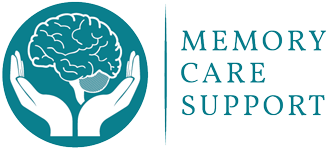Case Studies
Explore our four case studies, each showcasing the unique challenges communities and individuals face. Every case highlights tailored approaches, successful strategies, and meaningful outcomes for our clients. Witness how our proven approach to aging and dementia care has made a significant difference, leading to a deeper understanding of how personalized care can enhance the lives of those affected by dementia while driving operational success.
CASE STUDY 1
New Assisted Living Community
by Daizel Gasperian
Challenge
An assisted living community opened two years ago. The owners hired a company to manage operations, which was going well in the first year. However, growth stalled in the second year. Turnover was high and occupancy was declining, while little communication was shared about the situation. The owners brought me in to identify roadblocks and drive the operations forward.
Solution
I conducted regular visits to the community to pinpoint the challenges. It became evident that the managers needed leadership training, the staff required education and support in caring for residents with dementia, and the departmental processes needed to be thoroughly reviewed and brought to higher efficiency and productivity. Improving communication with families and establishing trust within the team was also identified as necessary.
I participated in the interview process for a new management company and recruited the right leaders for the community. Over a few months, we brought in a new Executive Director, Health Services Director, Sales Director, Activities Director, and a new management company. Throughout the transition, I provided unwavering support to the new leadership team, staff training, departmental review, and guidance, and introduced industry best practices to ensure a seamless transition.
Outcome
The community is now under new management and is primed for growth and success. It boasts a full management team and staff committed to providing exceptional dementia care for residents and supporting families and staff. Customer service has been enhanced, resulting in heightened family satisfaction and an increasing number of dedicated community champions.
CASE STUDY 2
Established Asssited Living Community
by Daizel Gasperian
Challenge
I was asked to assess the challenges faced by a well-established memory care community. Despite having a management company providing oversight on operations, the community was experiencing turnover in leadership, declining occupancy, and, consequently, reduced profitability.
Solution
The focus was identifying the underlying problems and devising strategies to re-orient the community to success.
With both the new Executive Director and Director of Health Services new to their respective roles, I dedicated time to helping them develop their leadership skills and providing tailored training to build on their existing skill sets. This included focusing on key operational and clinical indicators, personalized dementia care, resident assessments and interventions, and effective communication.
Outcome
Before the owner brought in a new management company, the main goal was to empower the leaders with knowledge, guidance, and confidence to lead their teams effectively. With the two key leaders building trust and followership, the community has fostered teamwork, ownership, and pride among the staff. Starting with the Executive Director, prioritizing people and maintaining essential communication with families and staff is crucial. The team is dedicated to providing exceptional care to individuals with memory impairment. The residents and families are very satisfied, and the community is at full occupancy. Establishing a culture where relationships are paramount is the key to a successful operation.
CASE STUDY 3
Importance of Education & Care Coodination
by Sue Kruse-Moroney
Challenge
Home health has provided wound care for a 97-year-old female in an assisted living community. The wound started as a skin tear and progressed to cellulitis. During the director of health services' absence, there was a miscommunication about wound care observation. When the director returned and examined the wound, it was found that a serious infection had develop and the resident needed immediate acute intervention.
Solution
The director promptly contacted the home health nurse and asked her to visit the community. She also informed the resident's son about the change in condition and the worsening of the wound. I provided education to the director, the community, and home health nurses about wound progression, symptoms of infection, and recommended treatment. In addition, it was emphasized that community nurses should accompany home health during wound care to observe the site themselves. It's essential to ensure that all nurses have a good understanding and expertise in wound care. Consequently, the resident was transferred to the hospital for IV antibiotics.
Outcome
After receiving IV treatment at the hospital, the resident fully recovered, returned to the community, and is now thriving. The community nurses, working in collaboration with home health, now operate under the guidance of the director of health services to ensure coordinated care. Both teams closely monitor the resident's progress to ensure they receive the best possible care, demonstrating the importance of clear communication and coordination among all care providers.
CASE STUDY 4
Navigating Through Medicare
by Rex Ledesma
Challenge
Carol is a 75-year-old woman diagnosed with Alzheimer’s disease. As her cognitive abilities declined, the costs associated with her care began to spiral. The family faced mounting expenses from frequent doctor visits, expensive prescriptions, and the specialized memory care services she required. On top of the financial burden, Carol’s family was overwhelmed by the complexities of navigating Medicare. They were uncertain about which plan could provide the best coverage for her evolving medical needs while preserving their savings. This uncertainty added significant stress to an already challenging situation.
Solution
Carol’s family consulted a Medicare specialist who carefully assessed Carol’s unique situation. The specialist recommended Medicare Advantage as the most suitable option for her dementia-related care. After evaluating different plans, they selected one that offered comprehensive benefits tailored to dementia patients, including prescription drug coverage, in-home health services, and access to skilled nursing care. The specialist also emphasized the importance of monitoring Carol’s care needs over time and utilizing Medicare’s Annual Enrollment Period to make necessary adjustments as her condition progressed. This proactive approach ensured that Carol’s plan remained aligned with her changing healthcare requirements.
Outcome
With the Medicare Advantage plan in place, Carol’s family experienced immediate financial relief, as a significant portion of her dementia care expenses were now covered. The reduced out-of-pocket costs allowed them to allocate resources more effectively, ensuring Carol received consistent, high-quality treatment without further depleting their savings. The newfound stability also relieved much of the stress they previously felt, allowing them to focus on Carol’s well-being and spend more meaningful time with her. Understanding the intricacies of Medicare proved to be a crucial factor in improving both Carol’s quality of life and her family’s peace of mind. They learned that making informed decisions about healthcare coverage could be the difference between feeling overwhelmed and feeling empowered in the face of a dementia diagnosis.

